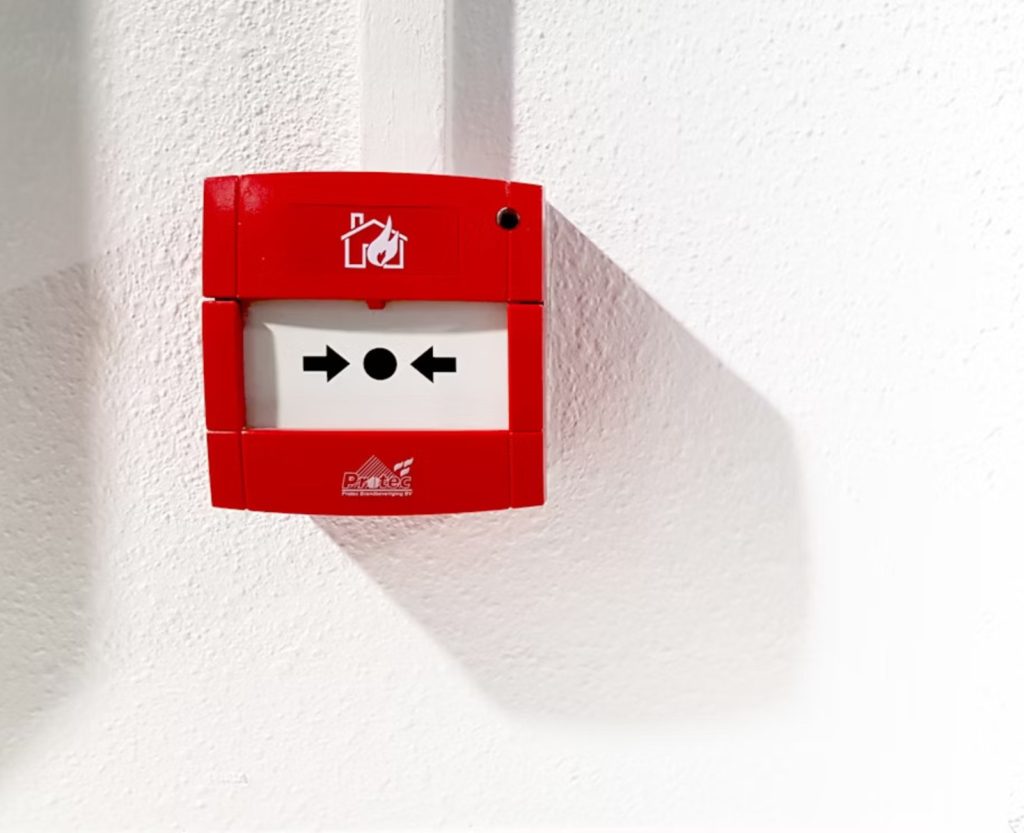Choose your smart contract platforms

Ethereum isn’t the only blockchain platform that supports smart contracts; there is also Solano, BNB, Hyperledger, Polygon, and many more. However, Ethereum is the most used smart contract protocol, with millions of them deployed to date.
Different blockchain platforms will require different programming languages to create smart contracts, namely:
- Solidity operates on the Ethereum virtual machine (EVM) and is currently the most popular language for smart contract development. You can combine it with other programming languages like C++, JavaScript, and Python.
- Rust is a quick and memory-efficient programming language used to develop scalable protocols. It usually works with smart contract blockchains like Solana, Polkadot, and Near.
- JavaScript can also be used in blockchain. Beginner blockchain developers mostly use it to start constructing decentralized products immediately in Hyperledger Fabric, Solana, and Icon.
- Vyper is a contract-oriented programming language inspired by Python and exclusively created for the Ethereum virtual engine. It aims to address Solidity’s security issues.
So, the first step on how to create a smart contract is choosing your preferred blockchain platform and programming language. However, in this article, we will only focus on how to build a Solidity smart contract on Ethereum, Binance and Polygon, with video instructions for better demonstration.
7 Step to create a solidity smart contracts
Step 1: Prepare the Development Environment
Before building any smart contracts (on any blockchain platform), you must always set up an integrated development environment (IDE). For Solidity, the best choices are:
- Visual Studio Code: a source-code editor for debugging, code deployment and version control
- Remix: a web-based tool for writing, compiling and testing smart contracts
- Truffle: a comprehensive framework for development, testing and managing assets in Ethereum.
- Hardhat: an open-source environment for building dApps and smart contracts on Ethereum.
Here are some other tools that can help you interact with Ethereum better, since it’s the base ground for Solidity:
- Ganache: Allow you to emulate Ethereum blockchain so you can run the smart contract on your own private blockchain.
- MetaMask: A crypto wallet that can interact with Ethereum. It is best if you are building dApps or smart contracts for trading digital assets.
- Web3.js: A JavaScript library to connect Ethereum nodes, powering transactions and calling smart contracts functions from JS applications.
- Infura: Build API access to Ethereum
Step 2: Select a language and a smart contract template
A blockchain platform is compatible with one or many programming languages. The point is you should choose one that best matches your goals and needs.
To reduce development time, you can use pre-built templates, such as OpenZeppelin, a popular open-source toolkit for reusable Solidity smart contracts.
Step 3: Create and test the smart contract
Once you’ve decided on a programming language and template, you may begin creating your smart contract code. You can develop and change code in the IDE, then test the smart contract locally using a testing framework such as Truffle. This helps you to detect any mistakes or bugs before the contract is deployed.
When testing, remember to check all the functions such as transfer, total supply, balance and automation.
Step 4: Compile the smart contract
After developing and testing the smart contract, you must compile it into bytecode that can be executed on the chosen blockchain platform. To compile the contract, use either the Solidity compiler or a tool like Truffle.
Step 5: Add the smart contract
After anything is done, you can deploy the contract using a tool like Remix or Truffle, or manually if your chosen platform allows it. For example, with Binance, you can use the Binance Smart Chain API tool.
Step 6: Interact with the smart contract
Communicate with it via a web3 provider such as MetaMask or Trust Wallet. You can use the provider to submit transactions to the contract and run its operations.
Step 7: Monitor and maintain the smart contract
Finally, you must monitor and maintain the smart contract to ensure that it continues to perform properly and securely. This involves monitoring its performance, troubleshooting any errors, and changing the contract as needed.
Once you use Solidity to write smart contracts, no matter which blockchain platform you choose, the way is similar, since it’s based on the Ethereum Virtual Machine. For more details, here’s the step-by-step instructions for writing Solidity smart contracts on Binance, Ethereum and Polygon.
- How to create smart contracts on Binance
- How to create smart contracts on Ethereum
- How to create smart contracts on Polygon
How much does it cost to create a smart contract?
It’s hard to say whether smart contracts are more expensive or cheaper than traditional ones. Despite cutting down costs for in-person meetings to set up agreements and the paperwork, you have to spend additional money to develop and deploy smart contracts.
And here’s the catch. The technology is in its early stages; hence, finding the right talent to write secure, error-free, and functional smart contracts will cost some dime.
- A simple smart contract, including deployment, can cost between $2k and $15k.
- A complex smart contract, including deployment, can cost between $25k and $50k.
Keep in mind that this cost doesn’t include transaction fees and audit costs. Furthermore, transaction fees are determined by the blockchain platform you choose and the current market conditions; they can change over time.
Then, after a while, you might want to audit your smart contracts, checking if any potential risks have been neglected, which can cost between $5,000 and $15,000.
This is an average sum-up for answering how much it costs to build and deploy smart contracts; for a more accurate estimate, let’s read on.
Factors of smart contract development cost
To more accurately estimate the cost of creating software, you need to understand the factors that affect the price of smart contracts.
1. The expected cost charged by blockchain platform, which may depend on the following factors:
- Gas expenses include contract formation and storage.
- Contract execution
2. The expected cost charged by a smart contract development company—which may rely on the following factors:
- How many people are engaged in the smart contract development process?
- Considerations for implementing a smart contract on Ethereum or another blockchain platform include necessary tools and technology, project management costs, and maintenance/post-delivery services.
Let’s break it down:
1. Cost charged by the chosen blockchainplatform
We will use Ethereum to give you some views of what happened behind the scenes. Here is what they usually charge:
Gas fees: Gas is required for any action on Ethereum, including minting and sending NFTs and running smart contracts that modify data. The gas cost for each new operation varies according to its size and complexity.
How much gas does it take to create smart contracts?
According to the data in Ethereum’s yellow paper, development takes around 32000 gases, while adding a new transaction to the Ethereum block costs 21,000 gases, bringing the total price of creating a smart contract on Ethereum to 53000 gases.
And how much is it in real money?

Free gas fee calculator that you can use!
Contract storage
Ethereum also charges for storing contracts. According to the whitepaper, they charge 20,000 gas every 256 bits. The larger the contract, the higher the gas price.
Contract execution
Given the considerations mentioned above, the anticipated cost of implementing a smart contract might be $5,000 for a moderate-sized contract. On the other hand, if you plan to make the smart contract extremely small and compact, the projected cost could be less than $500.
This is an example of smart contract deployment from World of Women Galaxy (Source: Mirror):
Deploying this contract cost $249.51 USD.
How’d we arrive at this total?
- Units = 3,776,292 units of gas
- Price = ~20.62 gwei or 0.000000021 ETH per gas
- Value = $3,146.36 USD / ETH
3,776,292 * 0.000000021 * $3146.36 = $249.51
A Free Smart contract gas fee and deployment estimation that you can consider
2. Cost of development
Number of people
Blockchain developers usually cost more than regular developers, as finding a good one in the market is more complicated and harder
You can opt for outsourcing, working with low-cost countries for some cost-effectiveness. Most of the time, the code quality is the same or even better. The best countries for developing blockchain and smart contracts include Vietnam ($20-$50/hour), Mexico, and Poland (usually higher).
Tools and Technologies
Truffle, Web3.js, Visual Studio Code, Ganache CLI, Parity, and Node.js are some of the tools and technologies needed to implement smart contracts in Ethereum. The subscription charges of various tools may also factor into the anticipated cost of smart contract deployment on Ethereum.
Maintenance and after-delivery services
After finishing the Smart Contracts deployment procedure on Ethereum, you may encounter faults and errors that must be fixed. In addition, a smart contract development company may charge for timely maintenance and post-delivery services.
Choosing the right smart contract development partner
When building a smart contract, it’s critical to select the correct service vendor who understands your company’s objectives, is familiar with the necessary technology, and provides relevant solutions at reasonable pricing.
Check that your chosen service provider has expertise working with Solidity and chosen blockchain platform.
It’s also a huge plus if they have legal experts on board since there are many concerns around smart contracts in court, and not many regions have imposed regulations to support the use of it.
Inquire about their security measures: how they store private keys, what they do to combat phishing attacks, etc.
It’s also a good idea to conduct research about the blockchain developer team. Look at their websites and LinkedIn accounts to see what other projects they’ve worked on. If feasible, chat with someone who has already worked with the company and ask about their experience and impressions.
Synodus – Creating your smart contract with ease
A well-versed smart contract development company in Vietnam, who have been working with many companies for their creation, from dApps, DeFi business, Gaming company to Real Estate Tokenization with smart contracts.
As we make our way through the world of blockchain, we also offer legal consultation in building and auditing smart contracts, making sure you have the right and protected tools.
Here’s a look at our extensive tech stack!

Find something in common with your mind? Our teams of 250+ executives in blockchain and software development are ready to talk!
Wrapping up
Creating a smart contract can be challenging, as it requires both knowledge and experience in blockchain and legal. As smart contracts can’t be changed once deployed, you should carefully plan, develop, test and audit it.
How useful was this post?
Click on a star to rate it!
Average rating / 5. Vote count:
No votes so far! Be the first to rate this post.




